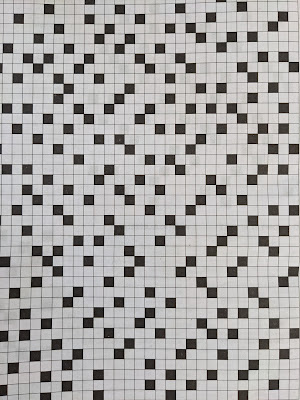Accidentals: Limits on Flexibility of Communication
 |
| Photo by Michał Parzuchowski on Unsplash |
Humans are capable of tailoring their communication to accommodate other people. The more flexible a communicator, the better are the chances of their intent to come through. However, how much communication is tailored ushers questions around dissolution of personality.
The words we use are reflections of intrinsic patterns in our brains. Language is based on experience. It can be said that the way we communicate our experiences is inseparable from the very experiences we want to communicate. We communicate based on our experiences and learnings, and we can only communicate our experiences and learnings. Hence, the language we use is an extension of the way we understand the world. It is comprised of the same parts that makes us who we are!
It is also true that we express ourselves to the world through our communication. The way we communicate is a part of our identities. Identity is not just the way we dress and the activities we partake in. For example, one may use "yellow" as a greeting, another "Wazzzuuuppp", and yet another "hello." The words we use are chosen as carefully as we choose to define ourselves. They are part of our identities!
Sadly, often individuals are faced with a conundrum of choice between fitting in and being themselves by their use of language. For example, one may be told that using a word too often is unprofessional or using a word at all, e.g., "obviously", is unprofessional. Another example, one may be told not to produce a simple sound, like "um", or change their tone of voice to be a good speaker.
More interestingly, individuality is challenged by norms of visual communication too. For example, one must dress in a suit to be welcomed as the boss. Another example, they need to look physically fit, or tall, to be welcomed as somebody who knows what they're talking about.
The challenge then is in defining where the boundary is between being able to accommodate other people, by tailoring communication, and preserving our right to be ourselves, by keeping what we'd otherwise consider a part of our identity. For example, it is unclear whether somebody removing an "um" from their oral behavior to become a better speaker is an improvement or personality washed away.
We are definitely far from allowing people to be who they want to be. Collective norms still dominate who is acceptable where. For example, the boss needs to be the "alpha" still and the "skimpy" people think a sex worker.
Being the bigger person would mean changing who you are. Removing a sound like "um" from somebody's behavior does help somebody else who is easily distracted and removing "unprofessional" words from somebody's behavior can help somebody else who wants to feel more at work. But, is being the bigger person really growth?
I contend it is not necessarily "good" change nor "growth" to change. Growth is what happens when you get over you being in your own way, not when you get in line with the program. Nevertheless, you'd be being the bigger person by tailoring, I do not know how much, your communication to help accommodate the way others interact with the world.

